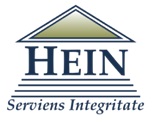Keywords
anti-competitive agreement, burden of proof, Croatia, price-fixing, standard of proof
Abstract
The Security agencies case represents another example of the procedural diversity among Member States in applying national competition rules that mirror Articles 101 and 102 TFEU. In its infringement decision the Croatian NCA specified that the presence at the meeting with competitors and participation in the discussion concerning minimum prices was sufficient to impute to the parties participation in an anti-competitive agreement prohibited under the national equivalent of Article 101 TFEU. As the Croatian NCA investigated an agreement ‘by object’, it considered itself relieved of the burden to demonstrate the anti-competitive effects. The Constitutional Court has taken a different approach and held that the fact that the participants of the meeting have not publicly denounced the results of the meeting, cannot serve as evidence of an anti-competitive agreement. The court also found that the Croatian NCA did not manage to provide a reasonable explanation why the ‘hourly cost of service’ apparently discussed by competitors is the same as ‘hourly price of service’ that appears in the NCA’s decision. As a result, the Constitutional Court’s approach deviated from several substantive presumptions developed by the EU Commission and the EU courts when applying competition rules in relation to anti-competitive agreements. This places a heavier burden of proof on the Croatian NCA in cartel cases when compared to its own preceding practice or the enforcement practices of the EU Commission or other European NCAs.
Recommended Citation
Svetlicinii, A. (2024). The Judicial Review of the Standard of Proof in Cartel Cases: Raising the Bar for the Croatian Competition Authority Case comment to the Judgment of the Constitutional Court of the Republic of Croatia No. U-III-2791/2016 of 1 February 2018 (Sokol Marić d.o.o.). Yearbook of Antitrust and Regulatory Studies, 11(18), 311-323. https://doi.org/10.7172/1689-9024.YARS.2018.11.18.13
First Page
311
Last Page
323
Page Count
13
Online Available Date
2018
DOI
10.7172/1689-9024.YARS.2018.11.18.13
JEL Code
K21
Publisher
University of Warsaw







